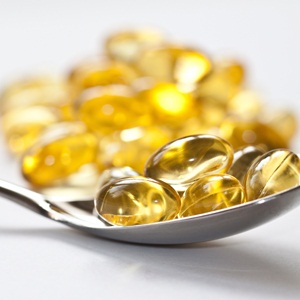
For many of us, popping a handful of supplements has become part of our daily routine. And whether it’s nutrients such as antioxidants, omega-3 essential fatty acids and iron, herbs such as Echinacea, St John’s wort and garlic, or sport supplements such as creatine and glucosamine – few of us stop to question whether our choice of supplements might be doing us harm or whether we should even mention it to our doctors. After all, it’s not really medicine… The truth is that, even though nutritional and herbal supplements might seem harmless, excessive intake and the potential interaction with medication could be harmful to your health.
Too much of a good thing
According to the US National Institutes of Health, supplements are most likely to cause side effects or harm when people take many supplements in combination, or when they’re used instead of prescribed medicines.
“Some dietary supplements can cause side effects if taken with other medications or if certain health conditions already exist,” says South African registered dietician Karen Protheroe. “Even if you don't take medication or have a chronic health problem, the wrong dietary supplement or amount could cause problems.” If you’re already taking a daily general multivitamin, multi-mineral tablet, adding single nutrient supplements may cause your intake of certain nutrients to be dangerously high. Add to that, your regular diet and the growing number of foods that are being fortified with vitamins and minerals, and you may have a real problem without realising it.
The dangers of nutrient excess
As an example, Protheroe refers to the findings of a large international study about the dangers of too many antioxidants, published in the Journal of the American Medical Association.
“A recent meta-analysis of data from 68 well-conducted trials around the world indicated that antioxidant supplements, on their own or in combination with other nutrients, could cause one to die sooner from diseases than if you were not taking anything. While antioxidants have many benefits, high doses over a long period could actually increase your risk of disease and death, instead of protecting you. The guilty supplements were beta carotene, vitamin A and vitamin E.”
Some popular mineral supplements can also affect your health when taken in excess. Too much iron, for example, can not only cause constipation but also lower your immunity, thus increasing your risk for developing infections. High doses of zinc can have the same effect, as well as reducing good cholesterol and causing headaches, while too much calcium can increase your risk for heart attacks and strokes.
Another very popular supplement is omega-3 fatty acids or fish oil. According to Protheroe, high doses of omega-3 can cause low blood pressure, lower your immunity and increase your bleeding time – not ideal if you’re planning to have an operation in the near future.
Interaction with medications
If you take any medication, it’s important to note that some supplements can affect their efficacy.
Vitamin K and ginseng, for example, can reduce the ability of the blood thinner warfarin to prevent blood from clotting. On the other hand, garlic, ginkgo biloba and omega-3 can boost the effect of both warfarin and aspirin and increase the risk of bleeding. St John’s wort can reduce the effectiveness of antidepressants and birth-control pills, and antioxidants may reduce the effectiveness of chemotherapy for cancer.
“It’s also been suggested that diabetics with impaired glucose tolerance should use fish oil supplements with caution as it may affect their blood-sugar levels,” Protheroe cautions.
The bottom line
In certain instances, supplements are really important and necessary (e.g. taking extra folic acid before and during pregnancy to prevent birth defects). But a healthy, varied diet should remain your number-one priority. Remember that, in addition to vitamins and minerals, foods contain hundreds of naturally occurring substances that can help protect your health.
If you believe you can benefit from supplements, consider the following guidelines from the Nutrition Information Centre of the University of Stellenbosch (NICUS):
- Discuss with your doctor all the supplements you’re taking and their possible side effects and interactions with your medicine (both prescription and over-the-counter).
- Consult a registered dietician on the adequacy of your diet.
- Choose a multi-vitamin-multi-mineral supplement that has up to two times the recommended amount only.
- Avoid single-nutrient supplements and avoid supplements that make glamorous claims without substantial proof.
Read more
Are you overdosing on vitamins and minerals?
Sources:
http://ods.od.nih.gov/factsheets/list-all/; http://www.nutrition.gov/dietary-supplements/questions-ask-taking-vitamin-and-mineral-supplements; http://www.sun.ac.za/english/faculty/healthsciences/nicus/Pages/default.aspx; http://ods.od.nih.gov/HealthInformation/DS_WhatYouNeedToKnow.aspx; http://health.usnews.com/health-news/articles/2012/02/22/4-herbal-supplements-your-doctor-hates; http://www.netquote.com/health-insurance/news/nutritional-supplements.aspx#ixzz3V7FXrvFv; http://www.berkeleywellness.com/supplements/other-supplements/article/supplements-tell-your-doctor; http://jama.jamanetwork.com/article.aspx?articleid=205797; http://health.clevelandclinic.org/2014/05/supplements-taking-many-can-hurt/




 Publications
Publications
 Partners
Partners















